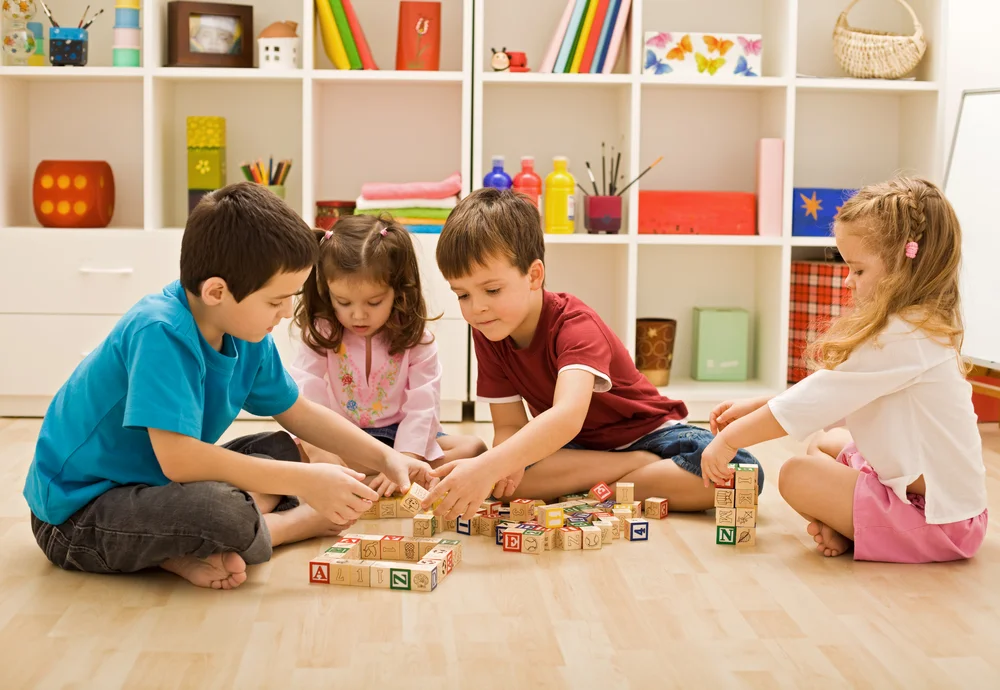Neuroscience, Behavioral Psychology, and Brain Development offer profound insights into how playtime shapes brain development in children. Additionally, understanding factors like child obesity and the role of iron in development is crucial in fostering environments that promote cognitive growth and overall well-being through play. This holistic approach can help parents and educators support healthy physical and mental development in children.
The Power of Play: A Neuroscience Perspective:
Play is more than just fun; it’s a fundamental aspect of childhood that shapes our brains and lays the foundation for lifelong learning and well-being. Neural science has shed light on the fascinating ways in which play interacts with our brains, offering valuable insights for parents and educators alike.
The Neuroscience of Play:
When children play, they engage in a multitude of cognitive, social, and emotional processes. The research has shown that play stimulates the development of various brain regions, including:
- Prefrontal cortex: Responsible for executive functions like decision-making, problem-solving, and impulse control.
- Amygdala: Involved in emotional regulation and social bonding.
- Hippocampus: Crucial for memory formation and spatial navigation.
These brain regions are interconnected and work together to support complex cognitive and social skills.

Neuroscience Behavioral Psychology and Role of Play in Brain Development:
The role of play in brain development is strongly supported by neuroscience and behavioral psychology. Play is not just a leisure activity but a fundamental aspect of brain development. Through engaging in experiments with kids, fun projects, and alphabet games, children develop essential social skills, emotional regulation, and problem-solving abilities. Including math activities in their playtime also enhances cognitive growth, demonstrating how playtime activities contribute to overall brain development.
The Link Between Play and Neuroplasticity:
Neuroplasticity, the brain’s remarkable ability to adapt and change, is significantly influenced by play. Repeated play activities strengthen neural pathways, enhancing memory, learning, and emotional resilience. This link between play and neuroplasticity highlights the need for play-based activities in early childhood.
Learning Through Play: A review of the evidence:
Research has consistently demonstrated that learning through play is an effective approach to education. When children are engaged in playful activities, they are more likely to:
- Retain information: Playful experiences create strong emotional connections, which can enhance memory and recall.
- Develop critical thinking skills: Play often involves problem-solving and creative thinking, which helps children develop these essential skills.
- Increase motivation and engagement: Playful activities are intrinsically rewarding, which can boost children’s motivation to learn.

Complex Play:
While all forms of play are beneficial, complex play, which involves imaginative scenarios, social interactions, and rule-based activities, has been shown to have particularly strong effects on brain development. Engaging in complex play can help children develop empathy, cooperation, and self-regulation.

Research on Play-Based Learning:
Numerous studies have investigated the impact of play-based learning on child development. These studies have consistently found positive outcomes in areas such as cognitive development, social skills, and emotional well-being. As our understanding of the neuroscience of playtime continues to grow, it is clear that playtime is not just a fun pastime; it is a vital component of a child’s healthy development.
Conclusion:
The neuroscience of play and brain development highlights the critical role of play in shaping a child’s cognitive abilities. Behavioral psychology supports that engaging in play fosters social skills, emotional regulation, and problem-solving, all essential for overall cognitive growth. Research on play-based learning further emphasizes the importance of play in neuroplasticity, demonstrating how complex play activities and educational apps significantly contribute to brain development. Understanding what happens when animals are play deprived reinforces the vital need for play in healthy development. Ultimately, learning through play is not just beneficial but essential for optimal brain development.
FAQS:
1. What happens when animals are play deprived?
When animals are deprived of play, they often experience significant developmental issues. Research shows that play-deprived animals may exhibit increased anxiety, social difficulties, and impaired cognitive function. The lack of play can hinder their ability to develop essential survival skills and adaptability.
2. How does play affect brain development?
Play is crucial for brain development as it stimulates neural pathways and enhances neuroplasticity, the brain’s ability to reorganize and form new connections. Through play, children develop cognitive skills, emotional regulation, problem-solving abilities, and social interactions, all of which contribute to overall brain growth and development.
3. What is the neuroscience behind the importance of play?
Neuroscience reveals that play is essential for healthy brain development. Engaging in play activates various brain regions, strengthens neural connections, and enhances neuroplasticity. This process is vital for learning, memory, and cognitive flexibility, making play a key factor in a child’s development.
4. What role does the brain play in growth and development?
The brain plays a central role in growth and development by controlling all bodily functions, processing sensory information, and enabling learning and memory. Through neuroplasticity, the brain adapts to new experiences and integrates information. Additionally, parental involvement in academic success can further enhance this developmental process by providing support and creating an enriching learning environment.
5. What is brain development according to neuroscience?
According to it, brain development is the process by which the brain forms and refines neural connections, especially during early childhood. This development is influenced by genetics, environment, and experiences like play, which are critical for enhancing neuroplasticity and cognitive growth.
External Resources:
American Psychological Association (APA) – The Importance of Play in Promoting Healthy Child Development and Maintaining Strong Parent-Child Bonds
Link: APA
Harvard University – Center on the Developing Child: InBrief: The Science of Early Childhood Development
Link: Harvard University
National Institutes of Health (NIH) – Brain Development
Link: NIH
Journal of Neuroscience – Play and the Brain: Research on Neuroplasticity and Child Development
Link: Journal of Neuroscience
The Child Mind Institute – How Play Helps Your Child’s Brain Development
Link: Child Mind Institute

Empowering parents to raise happy, confident kids. Get practical parenting tips and advice on our blog, Smart Parent Guides.
